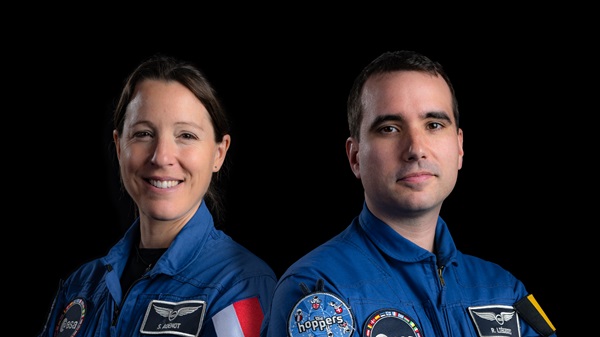 A Conigli;
Credit: ©ESA
A Conigli;
Credit: ©ESA
The European Space Agency (ESA) recently announced that astronauts Sophie Adenot and Raphaël Liégeois have been selected for their inaugural missions to the International Space Station (ISS), scheduled for 2026.
This announcement was made by ESA Director General Josef Aschbacher during the Space Council meeting in Brussels on 22 to 23 May 2024. He noted: “The assignment of Sophie and Raphaël as the next ESA astronauts flying to the International Space Station marks a significant milestone for ESA and its astronaut class of 2022. It is a tangible result of our commitment to continue a strong European presence in an international context. As exploration activities develop at an unprecedented rate, sending two newly graduated ESA astronauts to space is a crucial stepping-stone in the path of preserving European knowhow, ensuring Europe’s long-term participation in ongoing programmes such as Artemis as well as in any future projects involving human spaceflight and exploration.”
Sophie Adenot and Raphaël Liégeois are part of ESA’s 2022 astronaut class, and have recently completed their basic training. Their graduation was celebrated at ESA’s European Astronaut Centre in Germany on 22 April. Sophie, an engineer and helicopter test pilot, holds the rank of colonel in the French Air and Space Force. Raphaël, from Belgium, has a background in biomedical engineering and neuroscience. They both expressed immense enthusiasm and honour at being chosen for their respective missions, recognising the significant opportunity to represent their countries and Europe in space.
Sophie is scheduled to fly first, followed by Raphaël. Their assignments mark the first deployments from the ESA astronaut class of 2022 to long-duration ISS missions. ESA’s Director of Human and Robotic Exploration, Daniel Neuenschwander, highlighted that these assignments are the culmination of their personal dreams and the collective effort of their training team, reinforcing ESA’s role as a key partner in space exploration.
The astronauts will now enter pre-assignment and mission-specific training phases, where they will deepen the knowledge acquired during their basic training, according to the ESA. This preparation includes travelling to various partner sites and focusing on the specific tasks and experiments they will conduct in space. During their missions, they will perform numerous scientific experiments, many of which originate from Europe, conduct medical research, contribute to Earth observation, and participate in operational and maintenance tasks at the Space Station.
The latest ESA astronaut graduates, including Sophie Adenot, Raphaël Liégeois, Pablo Álvarez Fernández, Rosemary Coogan and Marco Sieber, are all set for future spaceflight assignments. ESA aims to ensure all five astronauts embark on ISS missions by 2030, further cementing Europe’s role in international space endeavours and scientific research.








